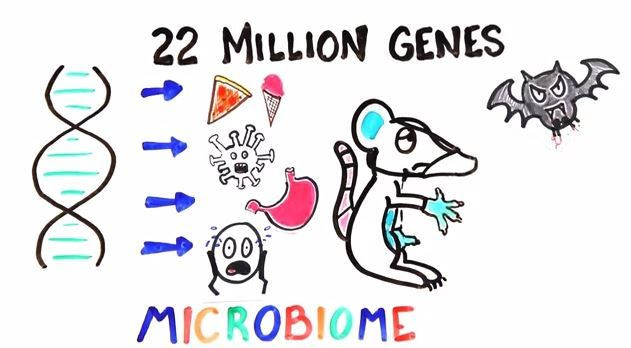Human Body Is Only One-Tenth Human: How Microorganisms Maintain Our Body's Functions

The human body is only a small fraction of human cells. An overwhelming majority of each person is made up of a specific set of microorganisms that control the human part of the body. Your body is not completely your own because each human contains approximately 100 trillion cells, which make up a community called a microbiome. One out of 10 of those cells is actually human, which means an overwhelming majority of you is made up of microbiomes.
In 2012, scientists revealed the first catalog of bacteria, viruses, and microorganisms that populate the outside and inside of the body. It’s all in an effort to understand how microbes help regulate and maintain the human body. They make up 90 percent of non-human cells that live in and on our bodies.
"The human we see in the mirror is made up of more microbes than human," the lead research of the Human Microbiome Project Lita Proctor from the National Institutes of Health, told NPR. "They belong in and on our bodies; they help support our health; they help digest our food and provide many kinds of protective mechanisms for human health."
The microbiome supports human health and all of the body’s genes and metabolic capabilities. They help digest your food, keep your immune system healthy, and regulate hunger, make you feel full, and control stress. Your body has control of the 90 percent of non-human cells by choosing specific lifestyles, foods, and environments. Everything you eat affects a human’s microbiome, such as probiotics found in yogurts that help support the microbes already in your body.
Same works for bad foods, though. Chicken nuggets, bags of chips, or other processed and chemically treated foods kill bad bacteria. However, they also kill good bacteria in turn and can throw your whole metabolic process and immune system off. The more diversity in the gut, the better. The rest of the world will have typically much more diverse microbiomes than Americans.
"There can be a disturbance in the immune system," Proctor said. "There can become some kind of imbalance. And then you can get a microorganism, which, under normal circumstances, lives in a benign way and can become a disease-bearing organism."
Published by Medicaldaily.com



























